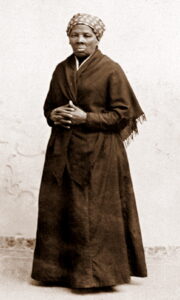Post By: Vishwanath Iyer Published on: December 3, 2016 Reading time: 3 minutes
Austerity or tapas is the exercise of increasing awareness of the Self by practice of austerities. Austerities come from self-denial of wants and suppression of desire. Consequently, this deprives the senses of stimulus which allows one’s cognition (buddhi) and logic (manas) time to reflect on itself. As a result, there is increased awareness of one’s Self.
Denial – The world has the ability to continuously engage us. However, to increase self-control, material interactions needs control. This includes;
Redirection – Time and energy saved by denial is redirected internally;
(Wikipedia extract) – Harriet Tubman was an African-American abolitionist, humanitarian and Union spy during the U.S Civil War. After escaping from slavery, into which she was born, she made thirteen missions to rescue over seventy slaves using the network of anti-slavery activists and safe houses known as the Underground Railroad.

Harriet Tubman
As a child, Tubman was beaten and whipped by her various owners. Early in her life, she suffered a traumatic head wound when she was hit by a heavy metal weight thrown by an irate slave owner, intending to hit another slave.
In 1849, Tubman escaped to Philadelphia, then returned to rescue her family. Slowly, one group at a time, she brought relatives with her out of the state, and eventually guided dozens of other slaves to freedom. Traveling by night and in extreme secrecy, Tubman (or “Moses”, as she was called) “never lost a passenger”.
When the American Civil War began, Tubman worked for the Union Army, first as a cook and nurse, and then as an armed scout and spy. The first woman to lead an armed expedition in the war, she guided a raid on the Combahee River, which liberated more than seven hundred slaves.
She was active in the women’s suffrage movement until illness overtook her. She died in poverty.
Tubman, widely known and well-respected while she was alive, became an American icon in the years after her death. She inspired generations of African-Americans struggling for equality and civil rights.
Internal Tags: Karma, Dharma (conditioning), Stress and Situational Awareness, Stress and prana, Awareness measures, Bhakti Yoga fundamentals, Jnana Yoga, Karma Yoga, Hatha Yoga and Raja Yoga.
External Tags: Consciousness